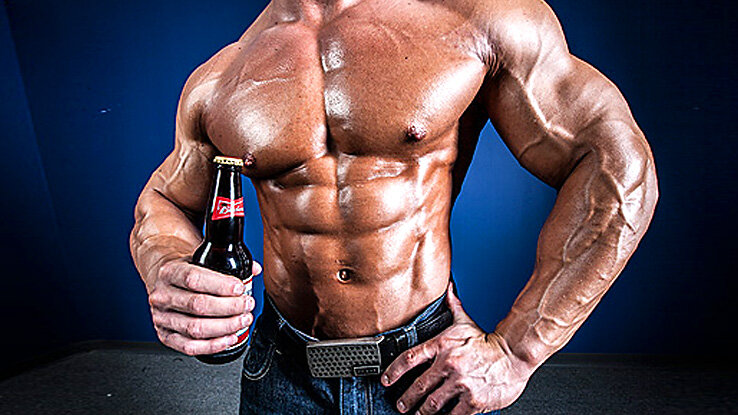Why Alcohol and Fitness Don’t Mix
Many Americans consider drinking alcohol to be part of the American lifestyle. People enjoy eating out at dinner on vacation, during sporting events, cookouts, and on weekends. Studies show moderate drinking has many health benefits, including cardiovascular health. Other studies show alcohol can increase insulin resistance. Moderate drinking is one drink per day for women and two for men.
Combining alcohol and fitness is a surefire way to make an accident. But what most people don’t realize is that alcohol can have a negative effect on a person’s physical performance up to 48 hours after they drink. Is it really a good idea for alcohol to be mixed with fitness? According to health experts, alcohol is not a good choice for fitness.
Calories Count
Experts say that even moderate amounts of alcohol can significantly increase your daily caloric intake. To reach your fitness goals, you need to consume more calories than you consume. Alcohol has a negative effect on the body by reducing the number of calories burned for energy. Only 5% of the alcohol calories consumed are converted to fat. Instead, alcohol can be converted to acetate. Acetate is a toxic substance that can cause nausea, headaches, and fatigue. Because the body eats what it consumes, acetate causes the body to burn the acetate rather than the fat. In essence, acetate hinders weight loss.
People often associate alcohol consumption with alcohol. Because alcohol can raise insulin levels, this causes a hypoglycemic condition in which sugar cravings and processed food cravings are observed.
Weight gain is possible by drinking alcohol and eating high-calorie foods. The Royal Veterinary and Agricultural University of Denmark studied the effects of alcohol on an individual’s eating habits. Two different tests were performed on a group consisting of men. The first allowed men to eat as much or as little as they wanted with only soft drinks. The second test allowed the men to have alcoholic beverages along with their food. The results showed that men consumed more calories in the second test than those who drank only soft drinks.
The Impact of Alcohol and Fitness on Sleep
The body repairs itself during sleep. This allows for greater muscle mass and stronger muscles following a workout. The release of HGH, also known as human growth hormone (or HGH), can negatively impact sleep cycles. HGH, a polypeptide hormone, is responsible for tissue growth, cell recovery, energy levels, and muscle growth. HGH, the latest development in bodybuilding, is well-known for its strong muscle-building and repair abilities. Consistent alcohol consumption can lead to a decrease in HGH by as high as 70%.
A poor night of sleep can often be caused by drinking before bed. Alcohol tends to induce sleep, which reduces REM sleep in the first half of the sleep cycle. Alcohol is rapidly metabolized, which causes shallow sleep and frequent awakenings in the second half. It is easy to see why fitness professionals discourage regular drinking of alcohol.
The Effects of Alcohol and Fitness on Muscle Building
The body’s ability to build muscle is affected by alcohol. Alcohol can have both short-term and long-term side effects. These include decreased coordination, energy, and slower reaction times that make it harder to build and maintain muscle. The kidneys balance the body’s nutrients to increase muscle strength.
Additionally, because alcohol directly affects kidney function, it can cause problems with nutrients and lead to muscle loss. The kidneys also filter water. The body can become extremely dehydrated if it uses its usual functionality to metabolize alcohol. It is vital to keep your muscles hydrated, as they are made up of 70% water.
A decrease in testosterone is one of the main factors that can affect your body after drinking alcohol. The most important hormone for muscle building is testosterone. The amount of muscle you can gain depends on how free-flowing your testosterone levels are. The addition of alcohol to the mix can increase cortisol, which is a muscle-wasting hormone, and increase testosterone’s breakdown. It is then converted into estrogen when testosterone is broken down. Increased estrogen levels lead to higher fat and fluid retention. This is the reason why people who consume large amounts of alcohol tend to have a larger waistline and less muscle mass.
Another aspect of muscle growth is minerals. The body is depleted of vitamins A, vitamin C, and vitamin B complex, as well as calcium, zinc, potassium, magnesium, and vitamin A.
Do Alcohol and Fitness Mix?
Alcohol’s negative effects on the body are generally greater than any health benefits. Some types of alcohol such as red wines have shown positive effects on certain individuals. However, it is safer to consume high-quality supplements and eat nutrient-dense foods to get the antioxidant benefits found in red wines.
Despite this, alcohol’s effect on fitness does not mean that one should stop drinking, but to raise awareness about the potential consequences of excessive alcohol intake. Additionally, it will help you build muscle mass faster by reducing alcohol consumption. One could argue that combining alcohol with fitness is a better way to achieve a great physique.
Did you know?
Music is a great way to get motivated and increase your performance. It can also be helpful for reducing stress and improving your mood. We’ve compiled some of the best workout tracks for you to try, so be sure to check them out!





